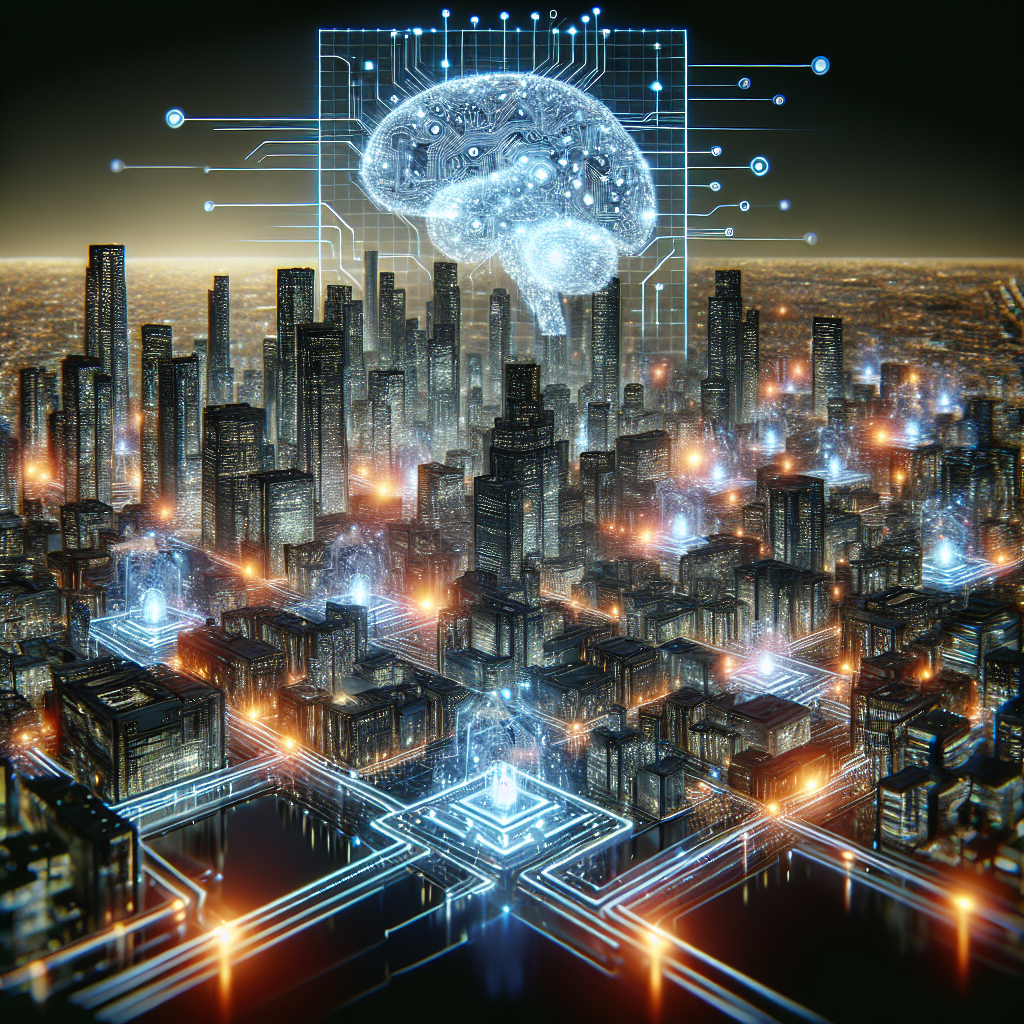Artificial General Intelligence (AGI) is the next frontier in the field of artificial intelligence. AGI refers to a machine intelligence that can understand, learn, and apply knowledge in a wide range of tasks, much like a human being. While current AI technologies are specialized in specific tasks, such as voice recognition or image classification, AGI aims to create a more general intelligence that can perform a wide range of cognitive tasks with human-like proficiency.
The development of AGI has the potential to revolutionize many aspects of society, from healthcare to transportation to education. With the ability to reason, learn, and adapt to new situations, AGI could lead to breakthroughs in innovation that were previously unimaginable. In this article, we will explore the future of innovation with AGI and how artificial intelligence is driving progress in various industries.
The Promise of AGI in Innovation
AGI has the potential to transform innovation in a variety of ways. One of the key advantages of AGI is its ability to process and analyze vast amounts of data at speeds far beyond human capabilities. This means that AGI can uncover patterns and insights that humans might miss, leading to faster and more accurate decision-making.
For example, in healthcare, AGI could analyze patient data to identify trends and patterns that could lead to new treatments or cures for diseases. In transportation, AGI could optimize traffic flow and reduce congestion by analyzing data from sensors and cameras on roads and highways. In education, AGI could personalize learning experiences for students by analyzing their learning styles and adapting the curriculum accordingly.
AGI also has the potential to automate repetitive tasks, freeing up human workers to focus on more creative and strategic endeavors. This could lead to increased productivity and efficiency in many industries, as well as the creation of new job opportunities in fields such as AI programming and data analysis.
Challenges and Ethical Considerations
While the potential benefits of AGI are vast, there are also significant challenges and ethical considerations that must be addressed. One of the main concerns with AGI is the potential for job displacement, as machines become capable of performing tasks that were previously done by humans. This could lead to economic upheaval and social unrest if not managed carefully.
There are also concerns about the safety and security of AGI systems. As machines become more intelligent and autonomous, there is the potential for them to make decisions that could have harmful consequences for humans. Ensuring that AGI systems are programmed with ethical guidelines and safeguards is crucial to prevent unintended harm.
Another challenge with AGI is the issue of bias in machine learning algorithms. If AGI systems are trained on biased data, they may perpetuate and even amplify existing biases in society. This could lead to unfair treatment of certain groups of people and further exacerbate social inequalities.
Despite these challenges, the potential benefits of AGI in driving innovation and progress are too great to ignore. By addressing these concerns and implementing appropriate safeguards, AGI has the potential to revolutionize many aspects of society for the better.
The Future of Innovation with AGI
Innovation with AGI is already underway in many industries. In healthcare, researchers are using AGI to analyze medical imaging data and identify early signs of diseases such as cancer. In finance, AGI is being used to analyze market trends and make investment decisions with greater accuracy and speed. In manufacturing, AGI is being used to optimize production processes and reduce waste.
One of the most exciting applications of AGI is in the field of autonomous vehicles. Companies such as Tesla and Waymo are developing self-driving cars that use AGI to navigate roads and make decisions in real-time. This technology has the potential to revolutionize transportation and reduce accidents caused by human error.
In the field of education, AGI is being used to create personalized learning experiences for students. By analyzing data on student performance and learning styles, AGI can adapt the curriculum to meet the needs of individual learners. This could lead to improved academic outcomes and a more engaging learning experience for students.
Overall, the future of innovation with AGI is bright. As researchers continue to make advances in artificial intelligence and machine learning, we can expect to see even greater breakthroughs in a wide range of industries. From healthcare to transportation to education, AGI has the potential to transform the way we live and work in ways we can only imagine.
FAQs
1. What is the difference between AGI and narrow AI?
AGI refers to a machine intelligence that can perform a wide range of cognitive tasks with human-like proficiency, while narrow AI is specialized in specific tasks such as voice recognition or image classification. AGI aims to create a more general intelligence that can adapt to new situations and learn from experience, while narrow AI is limited to the tasks it was designed for.
2. How close are we to achieving AGI?
While significant progress has been made in the field of artificial intelligence, true AGI is still a long way off. Researchers are working on developing algorithms and technologies that can emulate human-like intelligence, but many challenges remain to be addressed before AGI becomes a reality.
3. What are the ethical considerations with AGI?
There are several ethical considerations with AGI, including concerns about job displacement, bias in machine learning algorithms, and the safety and security of AGI systems. Ensuring that AGI systems are programmed with ethical guidelines and safeguards is crucial to prevent unintended harm and promote the responsible use of AI technology.
4. How can AGI drive innovation in various industries?
AGI has the potential to revolutionize many industries by analyzing vast amounts of data, automating repetitive tasks, and uncovering patterns and insights that humans might miss. By leveraging the power of AGI, companies can make faster and more accurate decisions, leading to increased productivity and efficiency in a wide range of fields.

